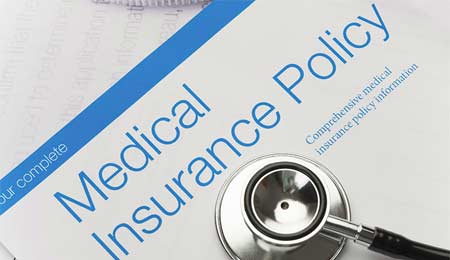Cost of Gastric Bypass Surgery
The cost of gastric bypass surgery can vary greatly between patients based on individual circumstances and a variety of factors, including the complexity of the surgery, bariatric surgeon's fees, geographic location, and level of care before and after surgery. Unforeseen complications will also increase the cost, especially if it requires additional surgery or a longer hospital stay.
- The average cost of gastric bypass surgery is $20,000 to $35,000
When discussing cost with your bariatric surgeon, ask how much the entire procedure will cost from start to finish. Some bariatric programs quote an all inclusive price and some bill items separately, so it is important to find out what fees are included and if any additional fees are expected. In regards to appointments with the bariatric surgeon, find out if office visits before and after the procedure are included in the overall price. Also, it is important to know what charges are billed separately, such as hospital fees, pre-op and post-op testing, and aftercare programs.
Costs associated with gastric bypass surgery:
- Fee paid to the bariatric surgeon, for pre-op visits, surgery, and aftercare
- Pre-surgery testing, including blood tests, EKG, and psychological evaluation
- Hospital charges
- Anesthesiologist fees
- Diet and nutrition counseling
- Behavioral or psychological counseling
- Enrollment in a fitness or exercise program
- Nutritional supplements
- Lab tests to monitor nutrient levels
- Travel expenses, for out-of-area medical providers
- Revisions

Payment Options
Once the patient and bariatric surgeon have decided to pursue gastric bypass surgery, there is the matter of payment. Because the surgery is expensive, most patients rely on health insurance coverage to cover the costs of the procedure. Without health insurance coverage, patients may want to consider medical financing, which allows them to make payments over time. For individuals who qualify, the surgery may be covered by Medicare or Medicaid.
Insurance Coverage
Many patients have health insurance that will cover gastric bypass surgery, but pre-approval is necessary. It is common for insurance companies to have strict eligibility requirements that must be met before approval is granted. Patient coverage is usually based on a patient's weight and body mass index, history of obesity, obesity co-morbidities, weight loss attempts, and medical necessity for bariatric surgery. Many insurance companies also provide coverage only when surgery is performed by approved bariatric surgeons and in a designated Bariatric Surgery Center of Excellence.
Depending on your policy, the amount of coverage will vary between patients. Your insurance company may pay anywhere from 50% to 100% of the different expenses associated with gastric bypass surgery, such as the bariatric surgeon fee, hospital charges, pre-op testing, post-op medication and care, and counseling appointments. Some insurance policies may even cover in-home care with pre-approval if it is prescribed by the doctor.
If the surgery is pre-approved by your insurance company, you may still have out-of-pocket expenses for your deductible, copay, and any incidental procedures that are not covered under your health policy. Your bariatric provider should be able to help you determine what expenses will and will not be covered by your insurance plan.
Bariatric Surgeon Fees
The choice of bariatric surgeon should be given careful consideration as it can affect both the surgery outcome and amount of weight loss. Although it may be tempting to find the doctor with the lowest fee, the focus should be on finding a reputable surgeon with skill, experience, and successful patient results. The bariatric surgeon's fee is determined by experience, geographic location, level of care, and patient demand.
Cost of Aftercare
Aftercare is a vital aspect of gastric bypass surgery, both in terms of a person's health as well as weight loss and weight maintenance. Bariatric programs that include aftercare in their package price may cost more, but it should not be considered an optional expense. A reputable bariatric surgeon will expect his or her gastric bypass patients to participate in post-operative follow-up care, including diet and nutritional counseling, behavioral support to learn new attitudes about food and eating habits, exercise programs, psychological counseling to help one deal with the emotional issues of obesity, and regular monitoring for nutritional deficiencies.
Tax Savings
The amount you spend on medically necessary weight loss treatment is considered a deductible medical expense for income tax purposes under the Internal Revenue code. This includes gastric bypass surgery as well as behavioral counseling, nutritional counseling, and medications when prescribed as a treatment for obesity or specific diseases caused by excessive body weight.
Related Articles
Social
Choosing a Bariatric Surgeon
When choosing a bariatric surgeon, it is important to take into account the doctor's level of training and expertise. With a highly qualified bariatric surgeon, you can expect better surgical outcomes and lower complication rates.




